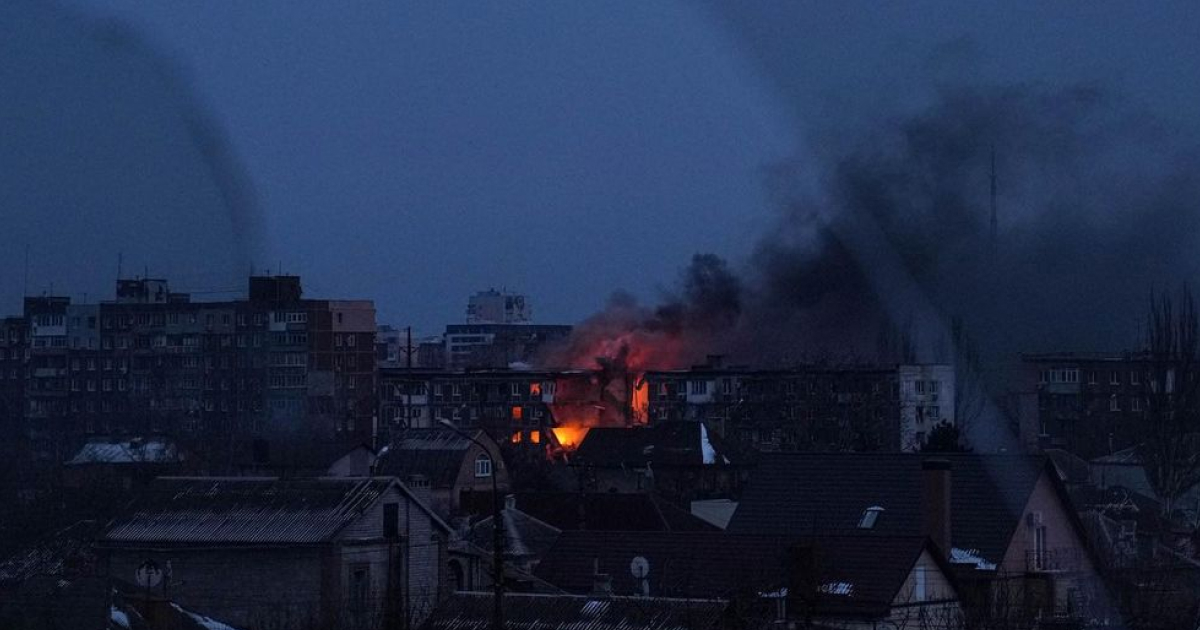For the so-called "reconstruction" of Mariupol, Russians engage immigrants from Central Asia

To rebuild temporarily occupied Mariupol, the Russian authorities are engaging immigrants from Oʻzbekiston Respublikasi, Türkmenistan, Qazaqstan, and Kyrgyzstan.
This is stated in an article by Dzerkalo Tyzhnia. In their text, they cite the adviser to the mayor of Mariupol, Petro Andriushchenko, who actively covers the situation in the temporarily occupied city, the president of Mariupol TV, Mykola Osychenko, and the mayor of the city, Vadym Boiko.
In Russia, people from these countries are derogatorily referred to as "new Russians" because they receive Russian citizenship after a certain period of time after moving. Russians have also attached to these people the pejorative cliché of "gastarbeiters" (the word itself is German for "a guest worker, a foreigner who is in the country for fixed-term employment." Another meaning is "a person who does low-skilled, hard, and dirty work for little money and has no civil rights" — ed.). Many such immigrants work in construction.
In Russia, due to the xenophobic views, these people are "not liked that much."
According to the mayor's adviser, Petro Andriushchenko, as of May 2023, 40-50 thousand people from Central Asian countries had moved to Mariupol. They work in construction and bring their families to the city.
Andriushchenko suggests that this number could rise to at least 80,000. In this way, Russia wants to gain a foothold in the occupied territories and hide its war crimes, as well as assimilate Mariupol.
According to an adviser to the mayor of Mariupol, Russia has already awarded 40 contracts for construction in the city and determined where it will take place. Therefore, the number of workers from Russia will increase.
To attract workers to move to the destroyed city, they are offered much higher salaries than in Russia.
According to Andriushchenko, the minimum wage for Russians in Mariupol is 150,000 rubles ($1,813.50), and the average is 230,000 rubles ($2,780.70). At the same time, Ukrainians in occupied Mariupol earn 30,000 rubles ($362.70).
Mykola Osychenko says that this financial inequality suggests a superior attitude of Central Asians towards the Ukrainians in the city, as they are on the verge of survival. The city has a high unemployment rate and problems with social benefits and high prices in shops.
In addition, Russia offers preferential mortgages for the purchase of housing in the temporarily occupied territories of Ukraine. So far, this housing has not been built, so Russians are being resettled in the apartments of those city residents who have left. For this purpose, these apartments were recognised as allegedly having no owners. Russian soldiers are probably also being moved into these apartments.
In general, the article's author concludes that by resettling Russian citizens to temporarily occupied Mariupol, Russia wants to solve two issues:
First, to change the ethnic composition of the population of the occupied territories so that Russians, not Ukrainians, prevail there (a similar practice was used in the USSR after the Holodomor and World War II — ed;)
Second, to solve the problem of the migrant crisis in Russia itself.


